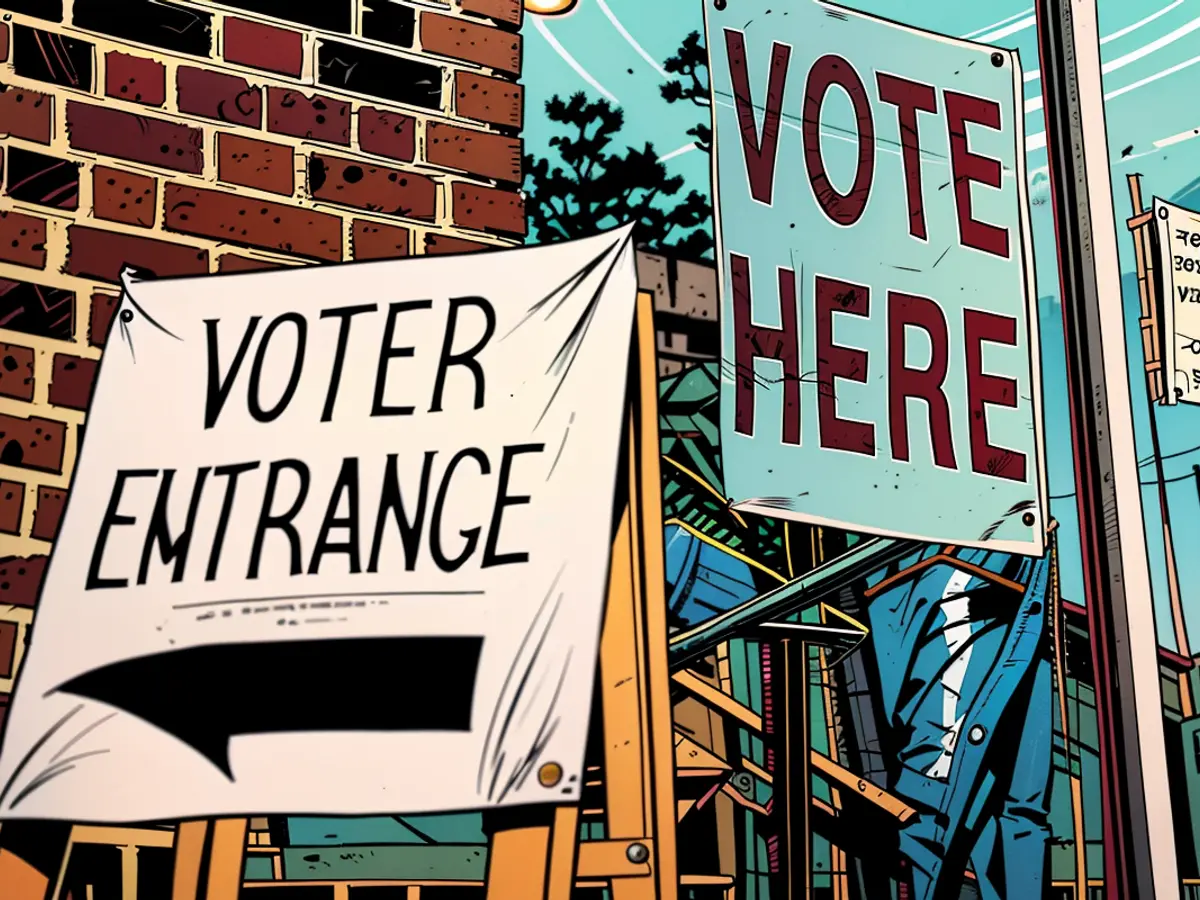Perspective: Harvey Weinstein case's turnaround not signifying the end of sex crimes trials
Deborah Tuerkheimer Recently, the New York Court of Appeals annulled the conviction of Weinstein in a surprise move, foiling what many saw as an important victory in the #MeToo movement.
The justification for the verdict primarily stemmed from the trial judge's decision to let testimonies from several women who were not implicated in the charged crimes. These women's allegations, which could not be prosecuted by the Manhattan DA due to issues of statute of limitations or location, were allowed to be heard alongside the accounts of the primary accusers. Following this, the jury convicted Weinstein on charges of criminal sex act and rape. He was currently serving a 23-year prison sentence before the verdict was overturned.
I wasn't shocked by the overturned verdict and don't view it as the end of sex crimes prosecution. I'm a professor of evidence and criminal law, also a former prosecutor. I teach that in many states such as New York, the law aims to restrict jurors' access to details concerning the defendant's "bad actions," which include witnesses who testify to other alleged sexual misdeeds.
This rule has exceptions, as in the Weinstein case, wherein the prosecution effectively convinced the judge to accept testimonies from the additional women. Three of the seven justices on New York's highest court would've upheld Weinstein's conviction if it were up to them. In cases involving gender-based violence, the admissibility of a defendant's history of misconduct is often a variable issue.
In these instances, the input of additional victims can be pivotal. My book, "Credible: Why We Doubt Accusers and Protect Abusers," discusses the prevalent technique of "credibility discounting" and elucidates the motive behind why only the accuser's testimony might not be convincing enough for juries. In the wake of sexual assault, victims frequently anticipate this discounting and resolve not to inform law enforcement authorities, which is why most accusations remain undisclosed. When they report, these cases are challenging for prosecutors due to the substantially higher standard of proof––proving the crime happened beyond any shadow of a doubt.
The existence of this elevated standard is not novel. For long in American history, incredulity was the norm when dealing with rape cases. A victim's testimony alone was inadequate to confirm guilt since there had to be additional evidence. The courts dismissed her allegation before reaching a jury for deliberation.
When New York initially enacted the corroboration requirement, it was intended to defend rape defendants from "dishonest," "vicious," or "untruthful" accusers, according to a decision from 1939. This regulation was later adopted by various other states.
In 1962, the formal stance of unbelief was formalized in the Model Penal Code, regarding it as "attempts to distort resolution of disputes in favor of the defendant." (The Model Penal Code is a guidebook by the American Law Institute, an influential organization made up of academics, jurists, and lawyers. Following ten years of effort to reformulate provisions on sexual assault, a revised edition is set to be published later this year.).
Today, while the corroboration requirement is no longer be encoded in law, credibility remains contingent upon the number of accusers coming forward.
This may explain the development of Weinstein's case. Nobody took notice of the first woman who claimed Weinstein assaulted her in 2015. But as scores of women eventually stepped forward, Weinstein became a representative figure for the accused in the #MeToo movement, subsequently prosecuted.
The trial in February 2020 marked a first-of-its-kind case replete with several uncommon factors. Apart from Weinstein's prominence and influence, it featured prosecutors venturing ahead into "bad facts"––facts that would create uncertainties for jurors, like missing physical evidence, absence of weapons, delayed reports, and inconsistent accounts.
This inevitably prompted credibility attacks on the accusers and a concurrent outburst of support from the prosecution. The desire to hear from the primary accusers wasn't limited to evidentiary concerns; it was also a conscious effort to overcome the pervasive credibility discount. However, with the recent Court of Appeals decision that Weinstein did not receive a legal hearing, it was evident that this strategy couldn't be upheld in court.
For survivors still struggling with considerable challenges in achieving justice, the system's inability to provide accountability may provide them with a disillusioning perception. Nonetheless, the promise of justice persists as social understanding continues to grow around sexual misconduct. Trials like Weinstein's dispel the myth of the ideal victim.
A significant development in the realm of sex crimes is the introduction of sex crimes experts educating both juries and the public. Case in point, the trial of Weinstein featured an expert, forensic psychiatrist Barbara Ziv, who testified to typical behaviors of sexual assault victims. Ziv described to the jurors that these patterns differ from person to person, but a common trend is victims not physically resisting, maintaining contact with their attacker, and often delaying reporting to law enforcement. She noted that people often hold inaccurate notions about sexual assault which are widely prevalent in society.
In our era after the #MeToo movement, sex crimes experts serve as a partial corrective to the discounting of credibility. However, it's crucial to remember that the alternative of requiring numerous accusers before anyone's allegations are taken seriously isn't a viable solution.
The issue of impunity for sexual abuse stems from society's tendency to question survivors, regardless of the eventual consequences. Be it Weinstein's impending California retrial or his possible appeal on similar grounds in New York, the problem remains glaringly evident.
Regardless of the outcome for Weinstein, the belief that multiple accusers need to speak up before any accusation is taken seriously can never be a solution.

Read also:
- This will change in December
- Dikes withstand water masses so far - Scholz holds out the prospect of help
- Fireworks and parties ring in 2024 - turn of the year overshadowed by conflicts
- Attacks on ships in the Red Sea: shipping companies avoid important trade route
The overturned verdict in the Harvey Weinstein case doesn't necessarily signal the end of sex crimes trials, as there are still many complexities surrounding the admissibility of additional victims' testimonies in such cases, as outlined in the book "Credible" by Tuerkheimer.
The discussion about the credibility of accusers in sex crimes trials is a long-standing issue, with societal biases often leading to the discounting of victims' testimonies. Despite the fact that the corroboration requirement is no longer a legal requirement, credibility is still largely contingent upon the number of accusers coming forward.
Source: edition.cnn.com








